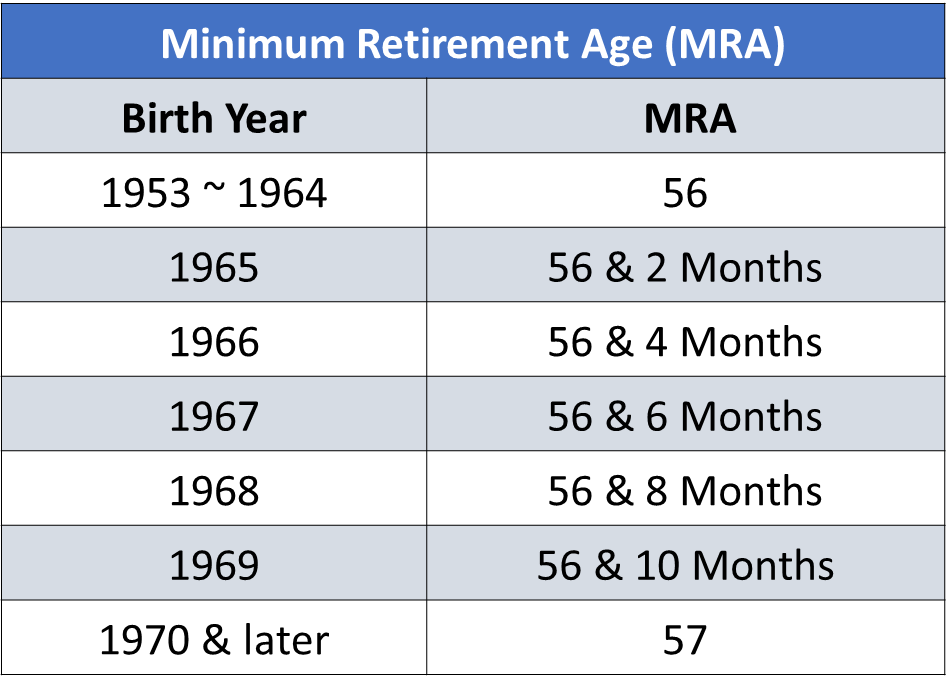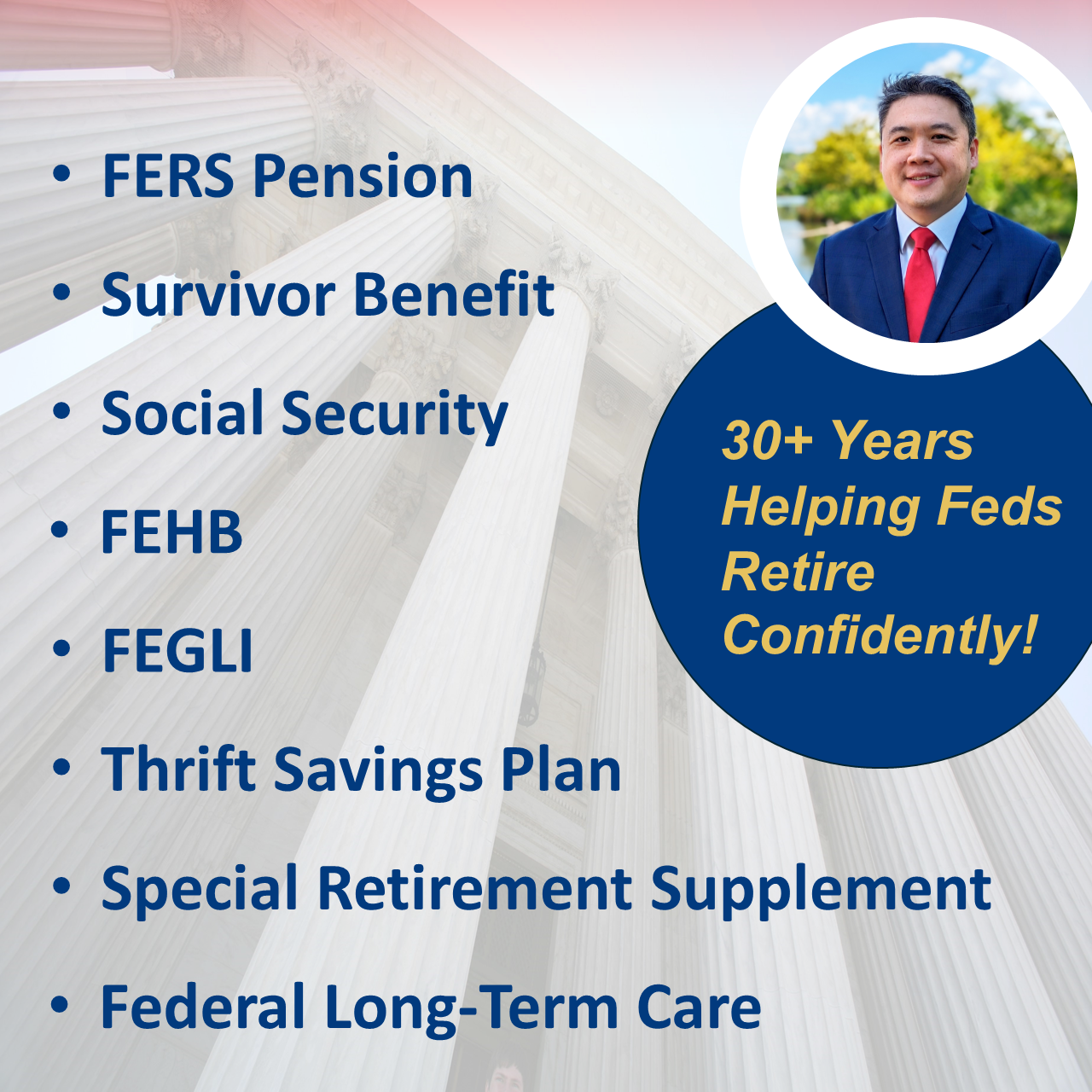The Optimal Age for Federal Employees to Retire: Exploring FERS Retirement Options
Determining the optimal age for federal employees to retire is a critical decision that involves many variables, including years of service, accrued benefits, and specific retirement provisions under the Federal Employees Retirement System (FERS). Understanding when to retire and the best time to maximize retirement benefits is essential for federal employees seeking financial stability and a comfortable post-retirement life. This article explores various retirement age options, the intricacies of FERS, and the different pathways available to federal employees.
Below are additional resources our readers have found helpful in preparation for a federal retirement.
- Calculate Your FERS Annuity Today – FERS Calculator
- The Best Date to Retire? Follow This Simple Rule for FERS Employees.
- Complete Guide to FERS – Federal Employee Retirement System.
Foreword – The Best Retirement Age Will Vary
The best age to retire for a federal employee will be different for everyone. What is best for YOU will be very different than your co-worker. In the end, it will come down to a number of factors that are not always financially related.
- How is your health? Is there longevity in your family history?
- Retirement lifestyle – do you want to travel? Start a second career? Spend more time with family?
- Can you retire earlier because your fiancial situation will allow you that freedom? Or do you need to work longer to support yourself in retirement?
- Financial goals – do you have a desire to leave your family an inheritance? Donate more to charity?
Retiring with a FERS pension is just the first step in deciding the ideal age to retire as a federal employee. It is important to consider your personal and financial goals as well before making your final decision.
Knowledge is Confidence!
What is the Best Age for Federal Employees to Retire?
The Core 3 – Ages 57, 60, and 62
Federal retirees have the option to retire as early as 57, however there could be a 10% bonus if you wait it out until age 62.
57 – Early Retirement
If you meet the age of 57 and have at least 30 years of service you have the ability to retire on an immediate, unreduced pension for life. In addition, you would be eligible for the FERS annuity supplement until age 62.
60 – Big Decisions to be Made
Federal employees are eligible to retire at age 60 if you have at least 20 years of service. In addition, you would be eligible for the FERS annuity supplement until age 62. However, most federal employees should consider staying until age 62 for a significantly larger, guaranteed monthly pension.
62 – The “Bonus” Retirement Age
Eligibility to retire if you meet the age of 62 and 5 years of service.
FERS Pension Calculation (regular)

FERS Pension 10% Bonus Calculation – Age 62 and 20+ Years of Service

What is the Best Age for Federal Employees to Retire?
Minimum Retirement Age (MRA) and Its Importance
The Minimum Retirement Age (MRA) is a pivotal concept in the FERS retirement system. The MRA is the youngest age at which a federal employee can retire with immediate benefits. The exact MRA varies based on the employee’s year of birth but generally falls between 55 and 57. Understanding the MRA is crucial for federal employees as it sets the earliest point at which they become eligible to retire, provided they meet the necessary years of service. Fulfilling the MRA allows employees to access their retirement annuity sooner, though it may come with reduced benefits if the full retirement criteria aren’t met.

Retirement at Age 62: Benefits and Considerations
Retirement at age 62 presents several advantages for federal employees. At this age, employees under FERS are eligible for an unreduced annuity if they have completed at least five years of service. This option is particularly attractive because retiring at age 62 allows federal employees to receive full retirement benefits without reductions. Additionally, retiring at this age aligns with the eligibility for Social Security benefits, which can supplement the FERS annuity and provide a more robust retirement income. However, retirement contributions and federal employment history can significantly impact the overall benefits, making it essential to consider these elements when planning to retire at age 62.
Retirement at Age 60: What You Need to Know
Retiring at age 60 is another viable option, especially for federal employees with significant years of service. To qualify for full benefits at this age, employees need to have completed at least 20 years of creditable service. The combination of age 60 and 20 years of service allows for immediate retirement benefits, providing an optimal balance between not waiting too long and ensuring a substantial annuity. However, employees should evaluate their retirement plan and consider the implications on their retirement annuity, as earlier retirement could mean fewer years of accumulating retirement contributions.
What Are the FERS Retirement Options?
Immediate Retirement Under FERS
Immediate retirement is one of the primary options under the FERS retirement system. This option is available to federal employees who meet specific age and service requirements. Generally, employees can opt for immediate retirement upon reaching the Minimum Retirement Age (MRA) with at least 30 years of service, at age 60 with 20 years of service, or at age 62 with five years of service. Choosing immediate retirement ensures continuous income through the retirement annuity, making it an attractive choice for those ready to leave federal service.
Deferred Retirement: Advantages and Disadvantages
Deferred retirement offers an alternative for federal employees who leave federal service before meeting immediate retirement criteria. Under deferred retirement, employees can start receiving retirement benefits at a later date, dependent on their age and years of service completed. One of the advantages of deferred retirement is maintaining eligibility for a retirement annuity without imposing mandatory retirement age restrictions. However, waiting for deferred retirement benefits may result in delayed financial stability and impact long-term retirement income.
Learn more about Deferred vs Postponed Retirement – Avoid Common Mistakes!
Discontinued Service Retirement: When It Applies
Discontinued Service Retirement (DSR) is another provision under the FERS system, mainly applicable in cases of involuntary separation not due to misconduct. Federal employees are eligible for DSR if they are at least 50 years old with 20 years of service or any age with 25 years of service. This option ensures that employees facing unexpected career disruptions still retain access to their retirement benefits. However, DSR may involve reductions in annuity, making it less favorable than other retirement pathways. Learn more about Discontinued Service Retirement for Federal Employees.
What Is Early Retirement and How Can Federal Employees Qualify?
Early Retirement Criteria and Eligibility
Early retirement allows federal employees to retire before the usual retirement age requirements, typically under special circumstances. To qualify for early retirement, employees often need to meet specific criteria, such as serving in positions subject to mandatory retirement or being part of early out retirement offers (VERA) from the agency. Early retirement can be beneficial for those seeking to leave federal service sooner, but it often comes with reduced retirement benefits. Evaluating the long-term financial impact is crucial for employees considering this option.
Retirement for Law Enforcement Officers
Law enforcement officers have unique retirement provisions under the FERS system due to mandatory retirement age regulations. Officers can retire as early as age 50 with 20 years of service or at any age after 25 years of creditable service. These provisions ensure that employees in federal law enforcement, who often face physically demanding roles, have access to full retirement benefits earlier in their careers. The distinction of their retirement system underscores the government’s commitment to acknowledging the risks and demands associated with law enforcement.
Implications of Early Retirement on Benefits
While early retirement offers freedom and flexibility, it has significant implications on benefits. For instance, retiring before reaching full retirement age often results in reduced annuity payments. Federal employees must carefully assess their financial readiness and other available resources to ensure they can cope with potentially lower retirement income. Additionally, understanding how early retirement affects health insurance, life insurance, and other federal employee benefits is crucial for comprehensive retirement planning.
How Do Age and Service Requirements Affect Federal Employees’ Retirement?
Years of Service and Their Impact on Annuity
The years of service completed by a federal employee play a crucial role in determining their retirement annuity. Generally, the longer an employee serves, the higher their retirement annuity will be due to increased contributions and accrued benefits. For example, an employee with 30 years of federal service will receive a more substantial annuity than one with 20 years of service. It’s also important to recognize creditable service periods, including military service and periods of leave without pay, which can positively impact the retirement benefit calculation.
Understanding Retirement Computation Under FERS
The computation of retirement benefits under the FERS system is based on a formula that includes years of service and the employee’s average salary over their highest three consecutive earning years. This “high-3” average salary is crucial for calculating the annual retirement annuity. Employees should be aware that various factors, including cost-of-living adjustments and survivor benefit elections, can alter the final annuity amount. Mastery of the computation formula allows federal employees to make informed decisions about their retirement timing and contributions.
Combining Age and Service Requirements: Examples and Scenarios
Combining age and service requirements can lead to different retirement outcomes. For instance, an employee who retires at age 50 with 20 years of service may receive different benefits compared to someone retiring at age 60 with the same service length. By analyzing various scenarios, federal employees can determine the most financially advantageous time and method to retire. Planning ahead and using tools like retirement calculators or consulting with retirement advisors can provide clarity and aid in making optimal retirement decisions.
What Happens When Federal Employees Leave Federal Service Before Retirement Age?
Options Available Under Deferred Retirement
Federal employees who leave federal service before meeting the age and service requirements for immediate retirement might find deferred retirement an appealing option. Leaving federal service early might necessitate waiting until reaching an eligible age for benefits initiation. While deferred retirement secures future benefits, it does require patience and strategic financial planning to bridge the income gap between leaving federal service and starting the retirement annuity.
Impact on Retirement Benefits and Annuity
Leaving federal employment prematurely can significantly impact retirement benefits and annuity amounts. Employees forfeiting the possibility for a full retirement annuity might face reduced monthly benefits due to fewer years of service and missing out on additional federal retirement contributions. Understanding these impacts allows employees to plan additional investments or savings strategies to make up for the shortfall in retirement income and maintain their desired standard of living.
Planning Ahead: Ensuring Financial Stability
Planning ahead is vital for ensuring financial stability after leaving federal service. Employees should engage in comprehensive retirement planning, which includes assessing other income sources like savings, investments, and spousal retirement benefits. Establishing a clear retirement plan, considering health care costs, and potential long-term care needs will provide a solid financial foundation. Utilizing resources like financial advisors and retirement planning tools can help federal employees navigate their retirement journey more effectively and avoid common pitfalls.
Reach Out to Us!
If you have additional federal benefit questions, contact our team of CERTIFIED FINANCIAL PLANNER™ (CFP®), Chartered Federal Employee Benefits Consultants (ChFEBC℠), and Accredited Investment Fiduciaries (AIF®). At PlanWell, we are federal employee financial advisors with a focus on retirement planning. Learn more about our process designed for the career fed.
Preparing for federal retirement? Check out our scheduled federal retirement workshops. Sign up for our no-cost federal retirement webinars through our online workshop page. Make sure to plan ahead and reserve your seat for our FERS webinar, held every three weeks. Want to have PlanWell host a federal retirement seminar for your agency? Reach out, and we’ll collaborate with HR to arrange an on-site FERS seminar.
Want to fast-track your federal retirement plan? Skip the FERS webinar and schedule a one-on-one meeting with a ChFEBC℠ today.










